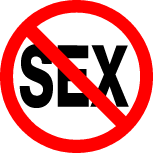 How many times have you heard that television rots your brain? And then wanted to charge at the person making this claim like a velociraptor at a cocky paleontologist?
How many times have you heard that television rots your brain? And then wanted to charge at the person making this claim like a velociraptor at a cocky paleontologist?Oh, don't get me wrong. I love books. I mean, well, duh, I write books! I have a house full of books! Books are sort of my life. But you know what else I love?
TV.
 I love TV on DVD. I love that I can use my DVR to record shows that are on at the same time. I love that there are funny shows and serious shows and documentary shows and sci fi shows. I love that there are all these stories that I can watch.
I love TV on DVD. I love that I can use my DVR to record shows that are on at the same time. I love that there are funny shows and serious shows and documentary shows and sci fi shows. I love that there are all these stories that I can watch.So why does TV get a bad rap? Why do so many of us think of it as a "low" art form, or as a hobby for the feeble-minded? Like, okay, The Jersey Shore exists. I'll admit it. But so does The X Files. So does House. So does Scrubs.
 And, yeah, books might be easy to pin as a high art, because you have to read them. But, come on, not to lay the smack down on anyone, but I'm going to go out on a limb and say that GOSSIP GIRL isn't particularly literary. (And I'm putting this out there because I'm like 99.9% sure that creator Cecily von Ziegesar would agree with me. I hope.) Does this fact stop jillions of readers from being entertained by the books? No.
And, yeah, books might be easy to pin as a high art, because you have to read them. But, come on, not to lay the smack down on anyone, but I'm going to go out on a limb and say that GOSSIP GIRL isn't particularly literary. (And I'm putting this out there because I'm like 99.9% sure that creator Cecily von Ziegesar would agree with me. I hope.) Does this fact stop jillions of readers from being entertained by the books? No.Books are a form of entertainment, too. Sure, sometimes books are going to be what I like to call "meat and potatoes" books. SPEAK by Laurie Halse Anderson, John Green's LOOKING FOR ALASKA -- you know, award-winny types. Entertaining and also enriching. Then there are what I like to call "candy bar books" -- the books we read for funsies and sometimes consider guilty pleasures. Books without many SAT words but with superfluous kissing scenes or maybe epic gun fights. Do these books change your world? Probably not. And that's cool.
 So what makes books better than TV? What makes them sacred? Like, okay, there are lots of reasons that books are different, ways that without seeing the pictures on your screen you might have to use your imagination more while you're reading. But have you ever watched an episode of your favorite show and felt just so inspired? Just wowed? The same way you feel after you finish a good book?
So what makes books better than TV? What makes them sacred? Like, okay, there are lots of reasons that books are different, ways that without seeing the pictures on your screen you might have to use your imagination more while you're reading. But have you ever watched an episode of your favorite show and felt just so inspired? Just wowed? The same way you feel after you finish a good book?TV and books are different ways to tell a story. But when it comes down to it, a story is a story. Why can't we love both, treat them equally, and call it a day? Why do we think certain things can go on TV but "don't belong" in books? Why are books on a pedestal, guys? I want to know.













